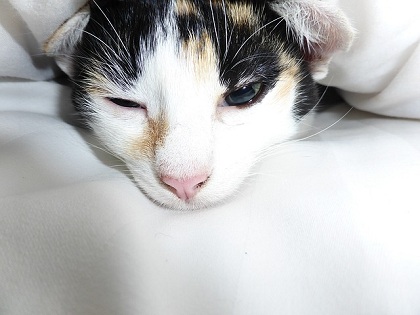What to Do to Help Poisoned Cat
What to Do to Help Poisoned Cat
Poisoning risks for cats are numerous, especially for kittens. Cats can be exposed to toxins, chemicals and other dangerous substances and materials in many ways. It is up to us, cat owners, to help them be safe in their immediate environment. Many life-threatening situations can be avoided by removing potential risks for cat’s health. Some foods that we eat every day and enjoy its taste can show fatal for our furry little friends. Feline experts consider chocolate, caffeine, alcohol, garlic, onion, raisins, sugarless gums, candies, and grapes poisonous for cats. They also warn us about certain plants that can have lethal consequences for our cats. Chewing, for example, amaryllis, lilies, ivy, cactus, azalea, rhododendron, Dieffenbachia, etc., can be toxic to cats. Experts advise us not to wait for a vet visit. According to them, we should bring a conspicuous plant, food label or packaging of a poisonous substance to help a vet in finding a proper treatment for a poisonous cat. Cats also can be harmed by chewing tiny strings from carpet or digest small objects like rubber bands, paperclips, threads, etc. To learn more about what to do to help poisoned cat, the article “How to Treat a Poisoned Cat” gives us the following instructions.
What to Do to Help Poisoned Cat
Get your cat to a well-ventilated area. When poisoning is suspected and your cat is lying down, unconscious or weak, immediately remove your cat from the area, and transfer it to a well-ventilated and well-lit place.
When a cat feels unwell, or is anxious, her first instinct is to hide. If the cat has been poisoned you will need to monitor her symptoms and so it is not appropriate to let her hole up somewhere. In a gentle but firm manner, pick the cat up and take her to a safe room. The kitchen or bathroom is ideal, since you will need access to water.
If the poison is within the area, cautiously remove it away from reach of any pets or humans.Immediately call a veterinarian.
Do not attempt to self-medicate your cat unless instructed. Do not give your kitty any food, water, milk, salt, oil or any other home remedy unless you know what poison the cat ingested and the specific medication or first aid.
Do not make your cat vomit unless instructed. Do not make your cat do anything without instruction from a vet or a pet poison helpline. Some poisons (particularly corrosive acids) can do more harm if vomiting is induced.
According to experts, every poisoning does not show as fatal. But, all poisonings are uncomfortable and tedious for cats. Each poisoning affects a cat in a different way. Sometimes, cat’s exposure to poisonous chemical or toxins can result in contact dermatitis. Occasionally, a poisonous cat can experience diarrhea, vomiting, stomach pain, cramps, difficulty breathing, etc. Each of these symptoms should be taken seriously and alarm us to take a cat to a vet. In poisoning, time and information are crucial. If we want to avoid all the complications that can come from cat’s intoxication, experts advise us to remove all medications, chemicals, and plants from the cat’s reach and avoid giving a cat human food.










